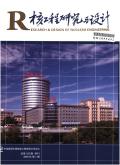Investigating Structural Response of Pressure Reducing Valve of Supercritical Steam Generator System Under Cyclic Moments, Thermal Transient, and Pressure Loadings
引用次数: 0
Abstract
Pressure reducing valve (PRV) located before the start-up vessel (SUV) is an essential component that decreases the pressure and temperature of the supercritical state steam by using spray water before it flows into the SUV. The PRV is kept closed during normal operation but opened during start-up and shutdown events, which could initiate thermal fatigue defects due to significant temperature changes. In addition to the thermal shock and internal pressure, system bending and torsional moments may be imparted on the PRV, threatening its integrity. To reinforce these concerns, cracks on the inside surfaces of the PRV have often been reported during planned maintenance activities in nuclear power plants. This research aims at analysing cyclic plasticity of the PRV subjected to cyclic moments, thermal and pressure loadings by means of an advanced direct numerical technique known as the Linear Matching Method (LMM). The cyclic moments are comprised of in-plane and out-of-plane bending, and torsion which are applied to an inlet branch pipe of the PRV. The cyclic thermal load is obtained from the transient heat transfer analysis using real operational data. Two different pressures, which are high and low pressures, are applied to internal surfaces of the PRV body and outlet pipe respectively. The analysed results construct a structural response boundary such as a shakedown limit boundary. The obtained structural response boundary is validated by full cyclic incremental analysis referred to as the step-by-step analysis. The analysed results have demonstrated that the plastic collapse limit is identical to the shakedown limit. Moreover, the results provide engineers with a safe load bearing capacity domain which otherwise requires evaluating structural integrity of the PRV subjected to the complicated cyclic loading condition using detailed assessments and analyses.超临界蒸汽发生器系统减压阀在循环力矩、热瞬态和压力载荷作用下的结构响应研究
位于启动容器(SUV)前的减压阀(PRV)是在超临界蒸汽进入SUV之前利用喷雾水降低蒸汽压力和温度的重要部件。PRV在正常运行时处于关闭状态,但在启动和关闭事件时处于打开状态,这可能会由于显著的温度变化而引发热疲劳缺陷。除了热冲击和内部压力外,系统弯曲和扭转力矩可能会传递给PRV,威胁其完整性。为了加强这些关注,在核电厂的计划维修活动期间,经常报告PRV内表面出现裂缝。本研究旨在利用一种称为线性匹配法(LMM)的先进直接数值计算技术,分析复合材料在循环弯矩、热载荷和压力载荷作用下的循环塑性。循环力矩由施加在进气支管上的面内、面外弯曲和扭转组成。利用实际运行数据进行瞬态传热分析,得到循环热负荷。在PRV阀体内表面和出水管内表面分别施加高压和低压两种压力。分析结果构造了结构响应边界,如安定极限边界。得到的结构响应边界通过全循环增量分析(即分步分析)进行验证。分析结果表明,塑性破坏极限与安定极限相同。此外,研究结果为工程师提供了一个安全的承载能力域,否则需要通过详细的评估和分析来评估PRV在复杂循环荷载条件下的结构完整性。
本文章由计算机程序翻译,如有差异,请以英文原文为准。
求助全文
约1分钟内获得全文
求助全文

 求助内容:
求助内容: 应助结果提醒方式:
应助结果提醒方式:


